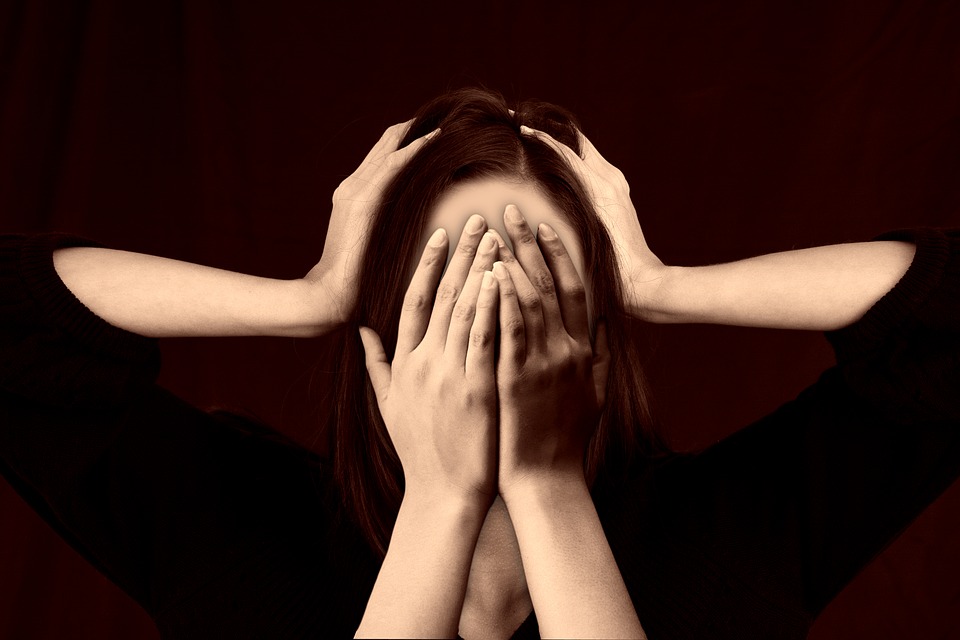
Body + Mind is reader-supported. We may earn an affiliate commission when you buy through some of the links on our site.
For some people, their period comes once every 28 days. For others, it tends to sneak up quicker or take even longer to occur. But regardless of when your period makes its eventful debut, most women tend to have one thing in common — menstrual cycle psychological effects that impact our moods.
But while you may feel a bit emotional or mentally drained during that time of the month, did you know that there are various other menstrual cycle psychological effects, too?
Sometimes, we find ourselves having a good cry as we watch Marley & Me and dig into our pint of Ben & Jerry’s. But other times, we find ourselves bawling our eyes out for entirely no reason. Not sure what’s causing you to feel sadness out of the blue? Where you’re at in your menstrual cycle may hold the key to finding out why.
Even before your body kick-starts your period, you undergo several hormonal changes that impact the chemicals sent to your brain. At the beginning of your period, serotine levels drop and cause feelings of sadness and depression that can seemingly manifest without a cause. In fact, sadness and low energy levels in females can often be traced back to hormonal shifts that happen during the menstrual cycle.
But if you don’t have depressive feelings before or after your period, you might not have to turn to an antidepressant to keep these sad feelings at bay when they make an appearance. Lifestyle, changes in your diet and exercise regime can help you counteract hormonal changes by producing serotine on your own.
Perhaps one of the most unsuspecting menstrual cycle psychological effects is having even more of a desire to get busy in the bedroom than normal. This is especially true around two weeks before your anticipated period. But why?
For most women, ovulation occurs two weeks before your period starts. During this time, your body is in the perfect position to get pregnant. From a biological standpoint, your body wants you to reproduce. So it’s no wonder your increased sexual arousal stems from hormonal shifts in your body that increase your chances of reproducing.
Just remember that your chances of getting pregnant are highest during ovulation. If the idea of motherhood doesn’t seem like a joy, be sure to take the proper precautionary measures by practicing safe sex throughout your entire cycle.
If you already have a mental illness, such as anxiety or depression, you know how emotionally exhausting it can be to go about your typical day. But if you feel even more on edge during specific times of the month, your period may be the cause.
In a research study that examined the psychological impact of menstruation on women with PTSD, feelings of anxiety and fear were even stronger at the start of their period.
If you find yourself already dealing with mood differences separate from your menstrual cycle, it’s crucial to maintain a healthy mind and body when your period begins. Whether you decide to go for a jog or eat a healthy dinner, take small steps that ensure your body is prepared for anything — period symptoms included — that comes its way.
Your palms begin to sweat and your heart starts to beat just a little bit faster. No, your mind’s not playing a trick on you. It may just be your period instead.
But you should sigh a breath of relief when you get your period, not go into a state of overwhelming panic — right? Unfortunately, changes in hormones can impact your energy levels, digestive system and overall sense of wellbeing. And when all of these areas are altered, your psychological functioning begins to feel the impact, too.
But don’t worry — literally. There are plenty of ways to counteract these worrisome thoughts. When your mind begins to race, try finding a sense of inner-peace — yoga style, that is. Yoga is used as a form of therapy for many women looking to decrease anxious thoughts while improving their general state of mind.
If you’re wondering how to regulate your period naturally as well, yoga can help get your hormones back on track, too.
It’s annoying to hear, but when someone chocks your mood up to your period, there can be more truth in that proclamation than you think (that doesn’t mean they should say it, though). Periods can be a pain — both mentally and physically — but there are many ways you can neat those menstrual cycle psychological effects to promote a sense of both physical and emotional wellbeing that’ll keep you happy and peaceful.
Your email address will only be used to send you our newsletter, and at any time you may unsubscribe. For more information, see our Privacy Policy.